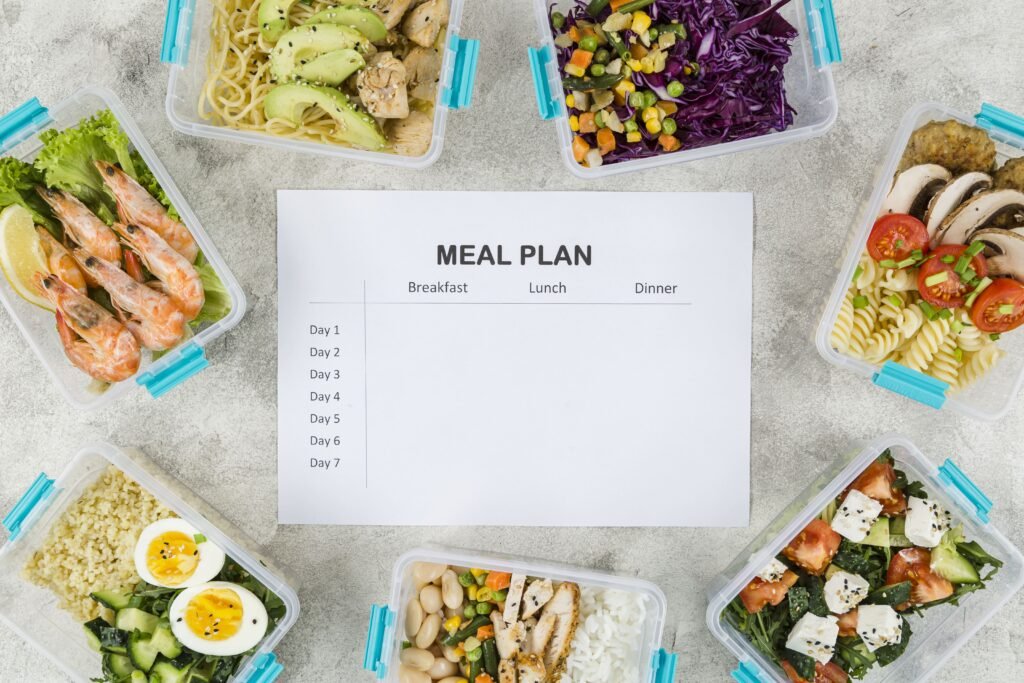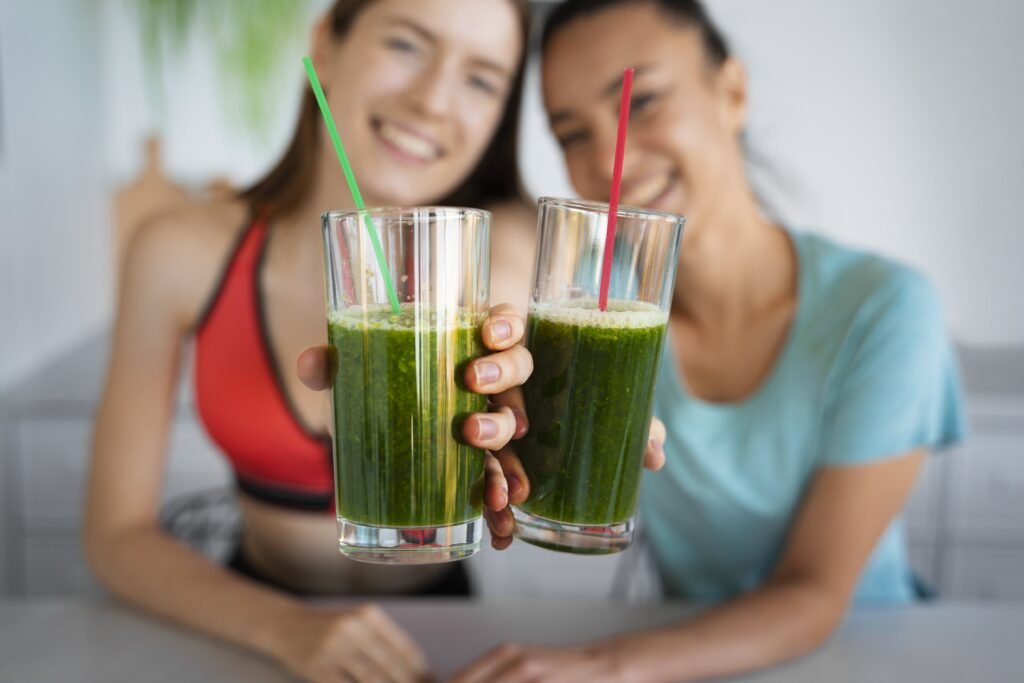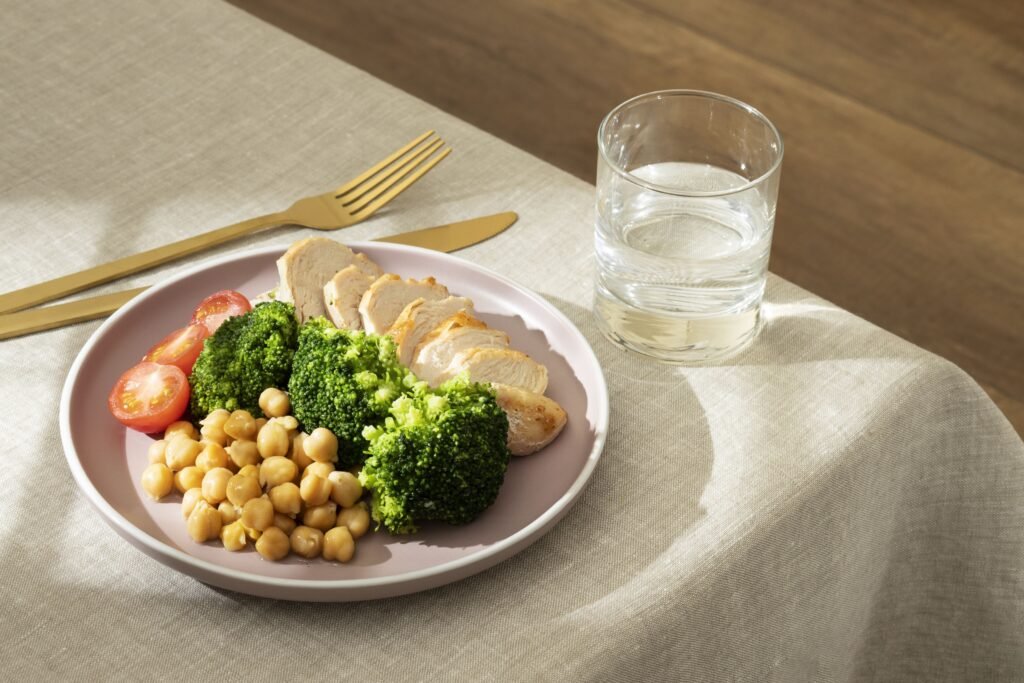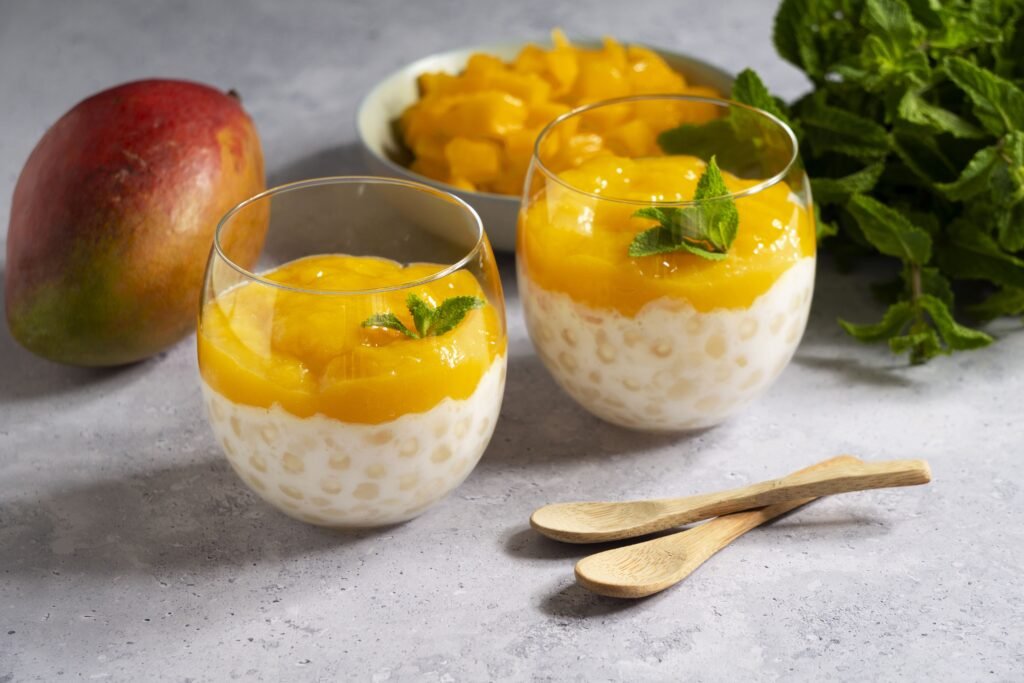
Why Gut Health Changed My Life (and Why It Can Change Yours Too)
A year ago, I found myself constantly bloated, tired, and mentally foggy. Doctors ruled out anything serious and chalked it up to stress and diet. That was my wake-up call. I went down the rabbit hole of gut health research — and it changed everything. Within weeks of changing how and what I ate, my digestion improved, my skin cleared up, and my energy soared.
My personal transformation came from eating whole, gut-supportive foods consistently. I had no idea my low energy and cravings were being triggered by an inflamed and imbalanced gut.
That’s why I created this 14-day gut health meal plan: to give you the blueprint I wish I had earlier. If you’re tired of feeling off, your gut might be the place to start.
Table of Contents
What Is Gut Health and Why It Matters
Your gut isn’t just a food processing unit. It’s home to trillions of microbes — your gut microbiome — that influence everything from digestion and immunity to mental clarity and weight management.
A healthy gut = less inflammation, better nutrient absorption, and more vibrant health.
Common signs of poor gut health:
- Bloating, gas, constipation
- Skin issues (like acne or eczema)
- Fatigue or brain fog
- Frequent illness
- Food intolerances
Key gut-friendly foods:
Polyphenols: Berries, green tea, olive oil
Probiotics: Yogurt, kefir, kimchi, sauerkraut
Prebiotics: Garlic, onions, bananas, oats
Fiber: Whole grains, beans, veggies
Week 1: Laying the Foundation for Gut Healing
Daily Gut Tip: Eat slowly and chew thoroughly. Digestion starts in your mouth.
Day 1: Start Fresh
Breakfast: Overnight oats with chia seeds, almond milk, and blueberries
Lunch: Chickpea quinoa salad with lemon-olive oil vinaigrette
Dinner: Grilled salmon with sweet potato and steamed broccoli
Snack: Greek yogurt with walnuts and cinnamon
Why it works: This day is rich in fiber, omega-3s, and probiotics. These help reduce inflammation and feed beneficial gut bacteria.
Day 2: Fermentation Fun
Breakfast: Kefir smoothie with banana, spinach, and flaxseed
Lunch: Turkey and avocado wrap in a whole wheat tortilla
Dinner: Tofu stir-fry with brown rice and bok choy
Snack: Carrot sticks with hummus
Gut fact: Fermented foods like kefir contain live cultures that repopulate your gut with healthy microbes.
Day 3: Plant-Powered Detox

Breakfast: Avocado toast with whole grain bread and hemp seeds
Lunch: Lentil soup with kale and carrots
Dinner: Baked tofu with quinoa and Brussels sprouts
Snack: Apple slices with almond butter
Gut bonus: Lentils contain resistant starch, a prebiotic that boosts healthy bacteria.
Day 4: Prebiotic Push
Breakfast: Yogurt parfait with sliced banana and oats
Lunch: Chickpea salad sandwich on sprouted grain bread
Dinner: Grilled chicken, asparagus, and brown rice
Snack: A handful of pistachios
Why it matters: Prebiotics are the food for your gut flora. They help probiotics thrive.
Day 5: Omega-3 Love
Breakfast: Chia pudding with almond milk and raspberries
Lunch: Tuna salad on mixed greens with olive oil
Dinner: Baked mackerel with carrots and wild rice
Snack: Cucumber with guacamole
Science note: Omega-3 fatty acids reduce inflammation and support gut lining integrity.
Day 6: Fiber Diversity
Breakfast: Green smoothie with kale, mango, and ginger
Lunch: Black bean and corn bowl with lime dressing
Dinner: Veggie stir-fry with tofu and millet
Snack: Pear slices with sunflower seeds
Tip: Diversity in plant foods encourages a more diverse microbiome.
Day 7: The Gentle Reset
Breakfast: Whole grain pancakes with berries and coconut yogurt
Lunch: Roasted veggie wrap with hummus
Dinner: Salmon with spinach and mashed sweet potatoes
Snack: Mixed nuts
Mindset moment: Reflect on how you feel. Notice changes in energy, digestion, and mood.
Week 2: Strengthen and Balance
Daily Gut Tip: Hydrate. Water helps your fiber do its job.
Day 8: Fermentation Deep Dive
Breakfast: Kefir smoothie with berries and chia
Lunch: Quinoa veggie bowl with sauerkraut
Dinner: Grilled chicken with broccoli and lentils
Snack: Greek yogurt with pumpkin seeds
Did you know? Sauerkraut and kimchi are rich in lactobacillus — a key gut-friendly bacteria.
Day 9: Anti-Inflammatory Plate

Breakfast: Turmeric oatmeal with apples and cinnamon
Lunch: Lentil vegetable soup with avocado toast
Dinner: Baked cod with roasted cauliflower
Snack: Carrot sticks with nut butter
Science bite: Chronic inflammation disrupts gut balance. Anti-inflammatory foods help heal.
Day 10: Back to Basics
Breakfast: Greek yogurt parfait with berries and flaxseed
Lunch: Avocado, black bean, and corn salad
Dinner: Tofu stir-fry with kimchi and quinoa
Snack: A handful of almonds
Why it works: Balanced meals prevent blood sugar spikes, which can irritate the gut.
Day 11: Whole Grains FTW
Breakfast: Sprouted grain toast with almond butter
Lunch: Quinoa bowl with veggies and tahini
Dinner: Salmon with kale and brown rice
Snack: Celery with hummus
Gut trivia: Sprouted grains are easier to digest and have more available nutrients.
Day 12: Fiber Reloaded
Breakfast: Smoothie with spinach, pineapple, and flax
Lunch: Lentil salad with arugula and cucumber
Dinner: Roasted tofu, eggplant, and farro
Snack: Fresh berries with dark chocolate
Pro tip: Aim for 25–35g of fiber per day for optimal gut function.
Day 13: Broth-Based Boost
Breakfast: Pear oatmeal with cinnamon
Lunch: Bone broth vegetable soup with a side salad
Dinner: Shrimp and quinoa with sautéed greens
Snack: Greek yogurt with hemp hearts
Why bone broth? It contains glutamine and collagen to support the gut lining.
Day 14: Celebration & Reflection

Breakfast: Chia pudding with coconut milk and mango
Lunch: Mediterranean quinoa bowl
Dinner: Baked salmon with roasted beets and spinach
Snack: Dark chocolate and pistachios
Reflection prompt: How do you feel now vs. 2 weeks ago? What will you keep?
Healing Your Gut Beyond Food
Gut health is more than what you eat — it’s how you live. Your daily routines, emotional wellbeing, and even your sleep cycles impact your microbiome. Let’s explore the powerful ways you can heal your gut holistically.
Stress & Your Microbiome
Chronic stress doesn’t just affect your mood — it physically alters your gut bacteria. Stress triggers the release of cortisol, which weakens the gut lining, reduces digestive enzyme production, and encourages the growth of harmful bacteria.
Simple practices that reduce stress and help your gut thrive:
- Box breathing: Inhale for 4 seconds, hold for 4, exhale for 4, hold again for 4.
- Gratitude journaling: Write down 3 things you’re thankful for each morning.
- Nature time: A 20-minute walk outside lowers cortisol and boosts microbial exposure.
Personal Note: I used to rush through every day with a packed schedule and nonstop pressure. The bloating and exhaustion didn’t fully resolve until I learned to slow down. Meditation and deep breathing truly gave me my life — and gut — back.
Sleep & Gut Repair
During sleep, your body enters deep repair mode — and that includes your digestive system. Inadequate or irregular sleep can cause microbial imbalance, sugar cravings, and increased gut permeability (aka leaky gut).
Gut-friendly sleep habits:
- Stick to a consistent bedtime and wake time, even on weekends
- Create a wind-down ritual with herbal tea, stretching, or a bath
- Avoid blue light (screens) at least an hour before bed
- Keep your bedroom cool, quiet, and dark
Bonus tip: Foods like kiwi, tart cherry juice, and pumpkin seeds naturally support melatonin production.
Movement Matters
Physical activity isn’t just good for your heart or waistline — it directly supports your gut microbiome. Studies show that moderate, consistent exercise increases the diversity of good bacteria in your gut.
Ways to move more, without overthinking it:
- Walk after meals to boost digestion and glucose control
- Try yoga or Pilates, which also help relieve tension and massage abdominal organs
- Dance, garden, bike — anything joyful and consistent
Pro Insight: Overtraining or intense HIIT without proper recovery can backfire by elevating stress hormones. Listen to your body.
Hydration & Gut Motility

Water keeps your digestion running smoothly, lubricating your intestines and helping fiber do its job. Dehydration slows transit time, leading to constipation and bloating.
Daily hydration habits:
- Drink a full glass of water first thing upon waking
- Aim for half your body weight in ounces (e.g., 150 lbs = 75 oz/day)
- Add lemon, mint, or cucumber for flavor and extra digestive benefits
Hydration hack: Keep a reusable water bottle near you as a visual cue — and refill it 3–4 times a day.
Sunlight & Circadian Rhythms
Your gut is influenced by your internal clock. Exposure to natural light in the morning resets your circadian rhythm, which improves digestion, hormone balance, and sleep quality.
Get outside early: Even 10 minutes of sun within 2 hours of waking can signal your body to optimize gut-brain communication.
The Big Picture: Healing your gut is a whole-life upgrade. Every step — from slowing down to sleeping well — adds up. When your lifestyle aligns with your biology, healing isn’t just possible. It’s inevitable.
Try integrating one of these strategies daily alongside your meal plan, and watch how your body responds. Remember: your gut listens to everything you do.
Final Thoughts
Your gut is at the core of your health — physically, emotionally, mentally. These 14 days can be the start of a radical shift toward better digestion, improved mood, glowing skin, and natural energy.
But it’s not just about food. It’s about reclaiming control over how you feel every single day. By tuning into your body, nourishing it with intention, and creating rhythms that support your microbiome, you’re choosing long-term health over short-term habits.
This isn’t a quick detox or trend — it’s a mindset shift. You’re building a strong foundation for a lifetime of vitality, clarity, and balance. Let each meal, walk, breath, and glass of water be a love letter to your future self.
Remember: You don’t have to be perfect. Just be consistent. Keep showing up. Your body is always listening and always healing.
Frequently Asked Questions About Gut Health
Q: What about alcohol or coffee?
A: Alcohol and excessive caffeine can irritate your gut lining and disrupt the balance of gut bacteria. If you consume these, do so in moderation and always with food to minimize their impact. Consider cutting back during your gut reset for best results.
Q: How do antibiotics affect gut health?
A: Antibiotics kill both harmful and beneficial bacteria in your gut, which can cause an imbalance or “dysbiosis.” After antibiotics, it’s important to restore your microbiome by eating probiotic-rich foods like yogurt and fermented veggies, or by taking a high-quality probiotic supplement.
Q: How long does it take to improve gut health?
A: Improvements can begin within 2 to 4 weeks when you consistently follow gut-friendly eating and lifestyle habits. However, complete healing—especially from chronic gut issues—may take several months. Consistency and patience are your best allies.
Q: Can gut health affect my weight?
A: Absolutely. Your gut microbiome influences digestion, fat storage, and hormones that regulate hunger and fullness. An unhealthy gut may cause cravings, inflammation, and metabolic slowdowns. Supporting your gut with fiber-rich, probiotic foods can help improve weight management naturally.
Q: Are probiotics or prebiotics better for gut health?
A: Both are essential but serve different roles. Probiotics introduce beneficial bacteria to your gut, while prebiotics are fibers that feed and nourish those good bacteria. Eating a mix of both in your diet ensures a balanced and thriving microbiome.
Q: Can stress really affect my gut health?
A: Yes! Stress triggers the release of cortisol, which can weaken the gut lining and alter the balance of gut bacteria, leading to digestive discomfort and inflammation. Incorporating stress reduction techniques like meditation, deep breathing, and nature walks can improve your gut health significantly.
Q: What are the best foods to eat for gut health?
A: Focus on whole, unprocessed foods rich in fiber, such as vegetables, fruits, whole grains, legumes, nuts, and seeds. Include fermented foods like yogurt, kefir, kimchi, and sauerkraut to boost probiotics. Avoid processed sugars and artificial additives that can harm your gut bacteria.
